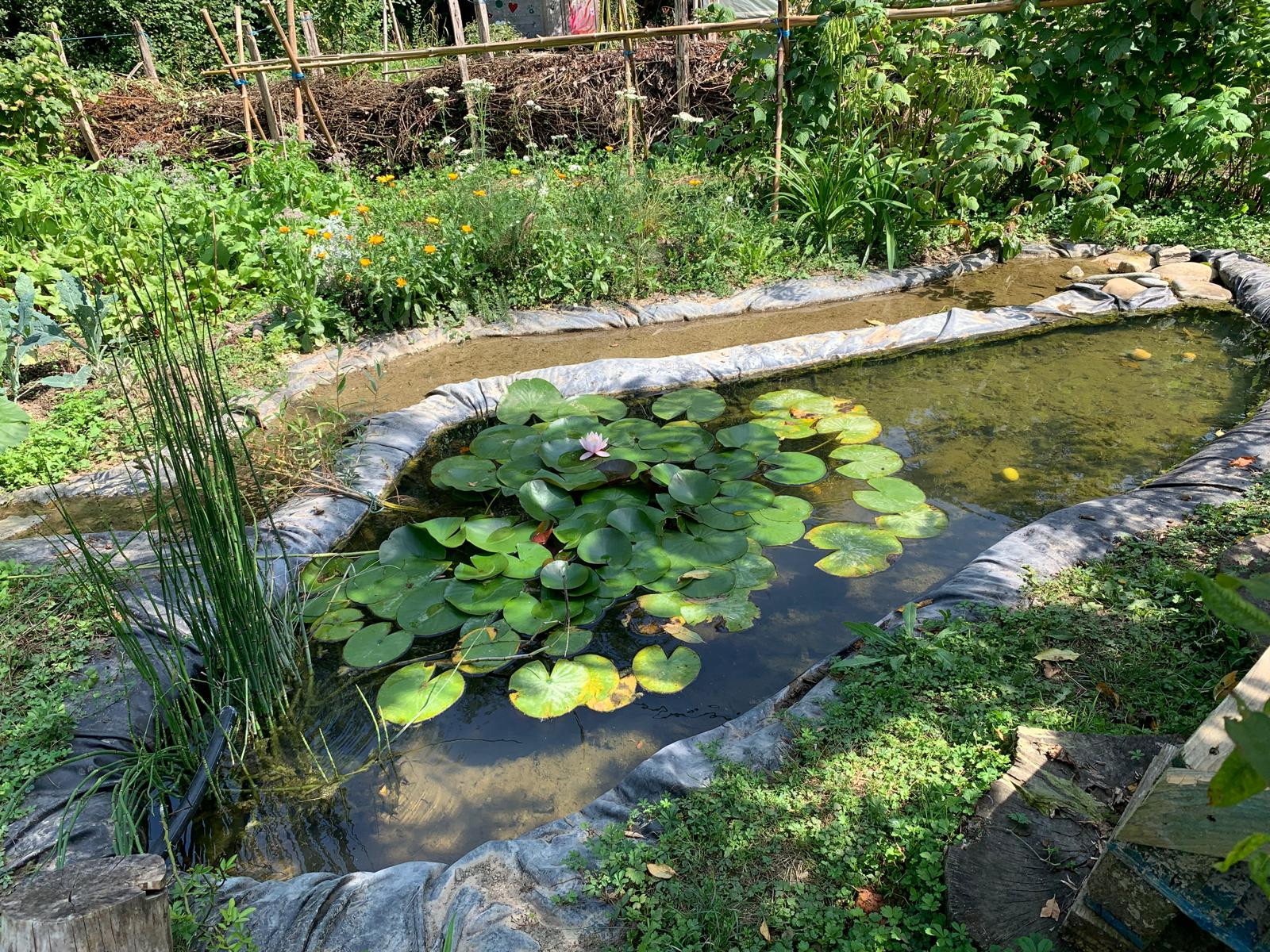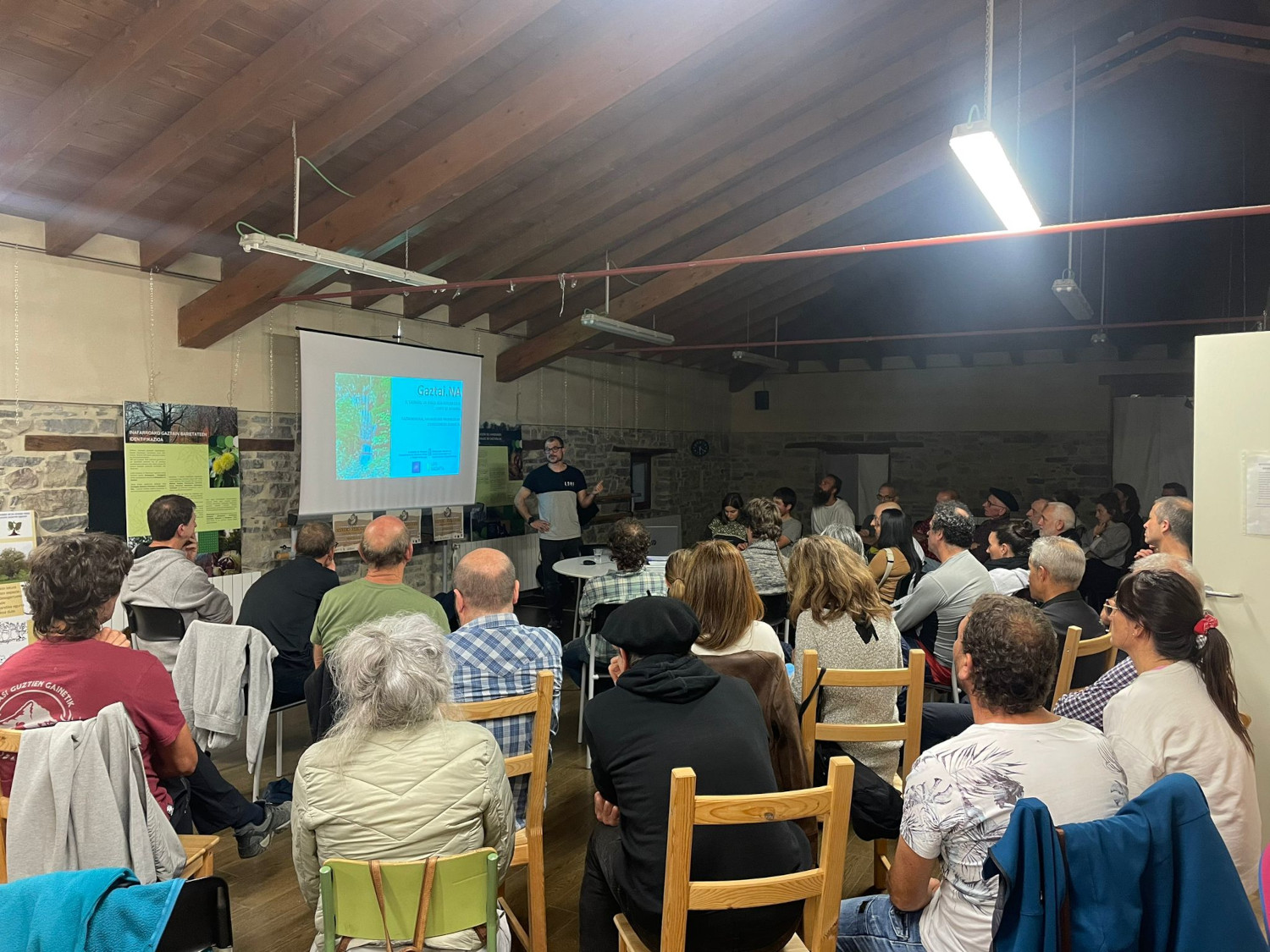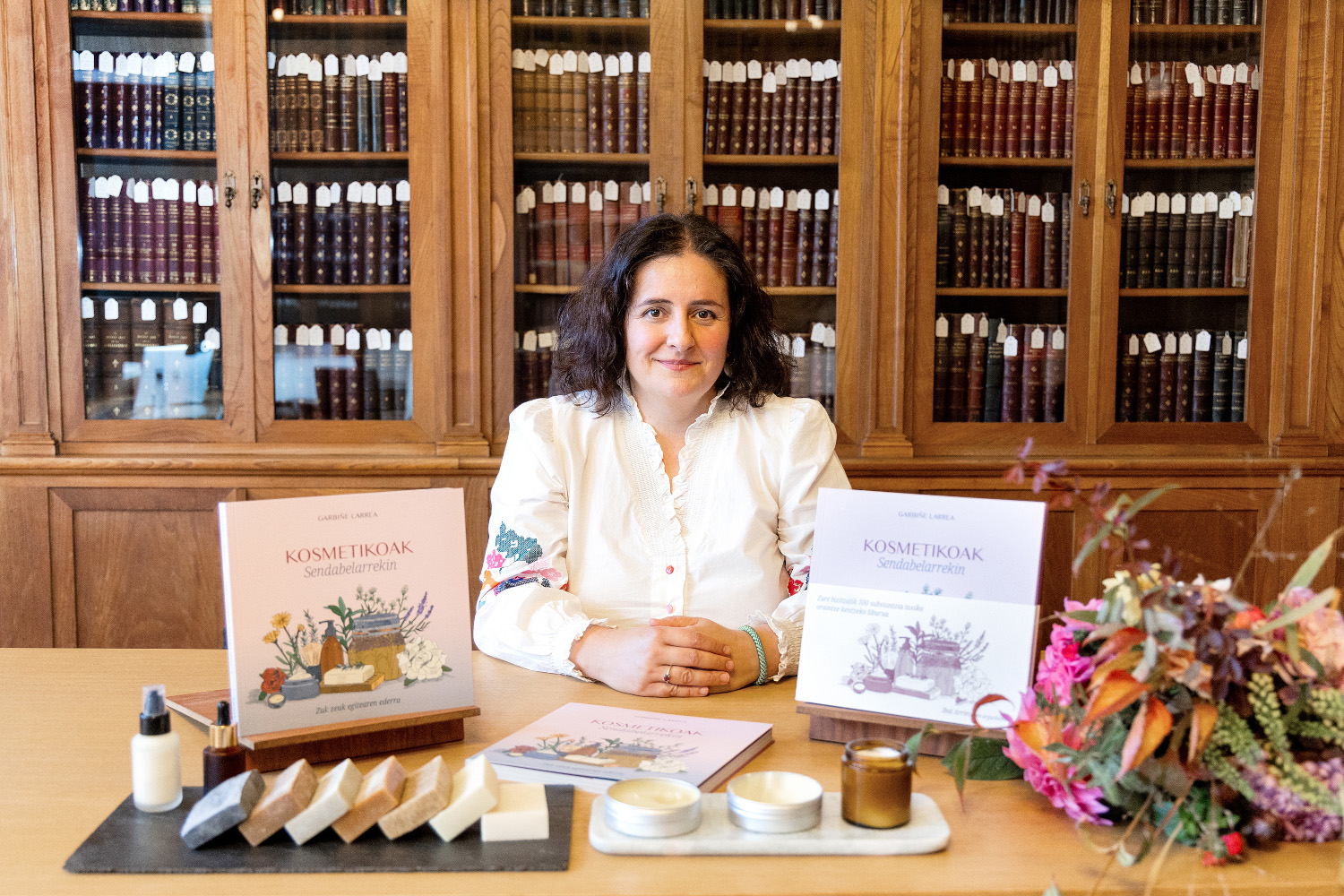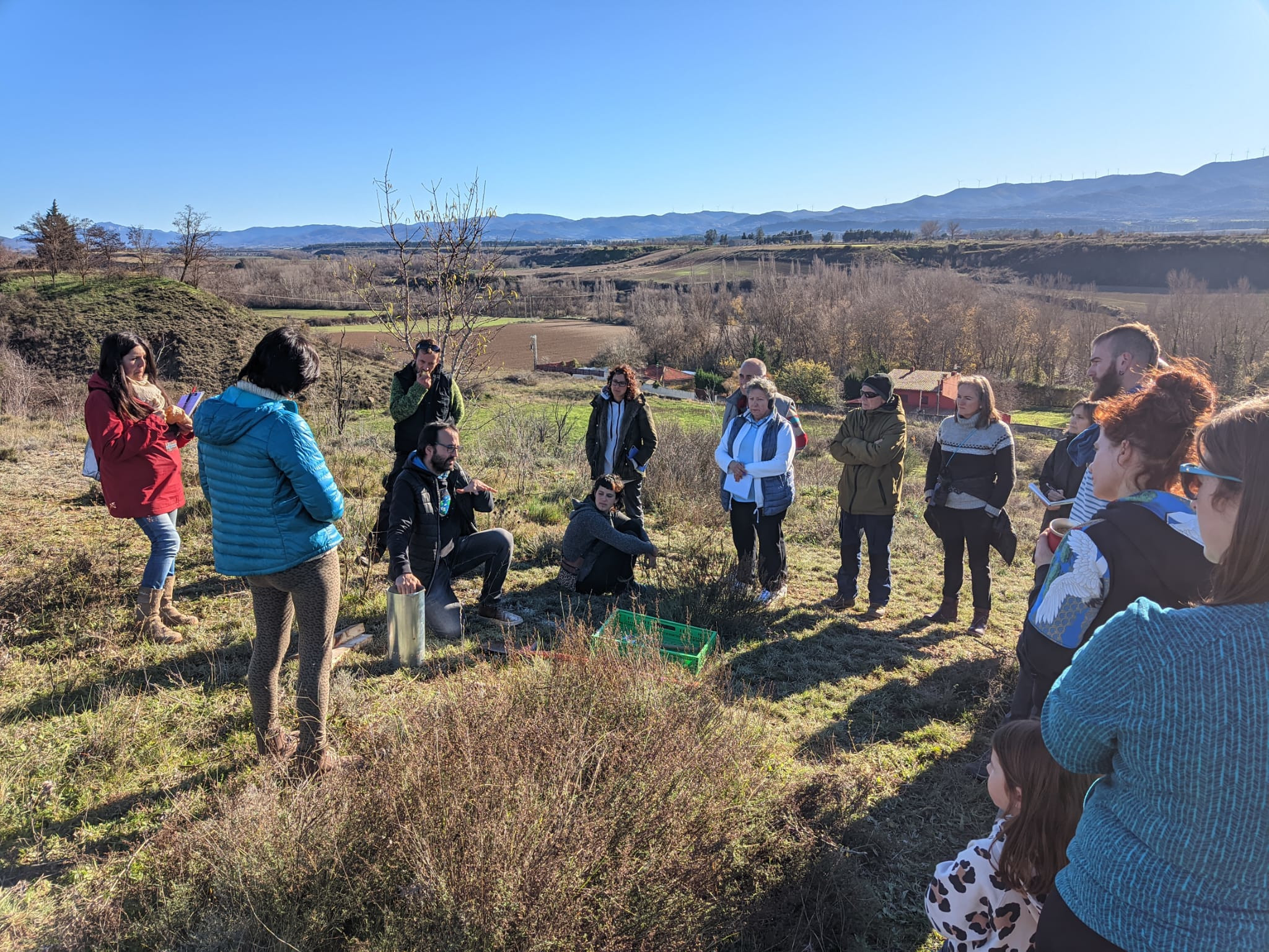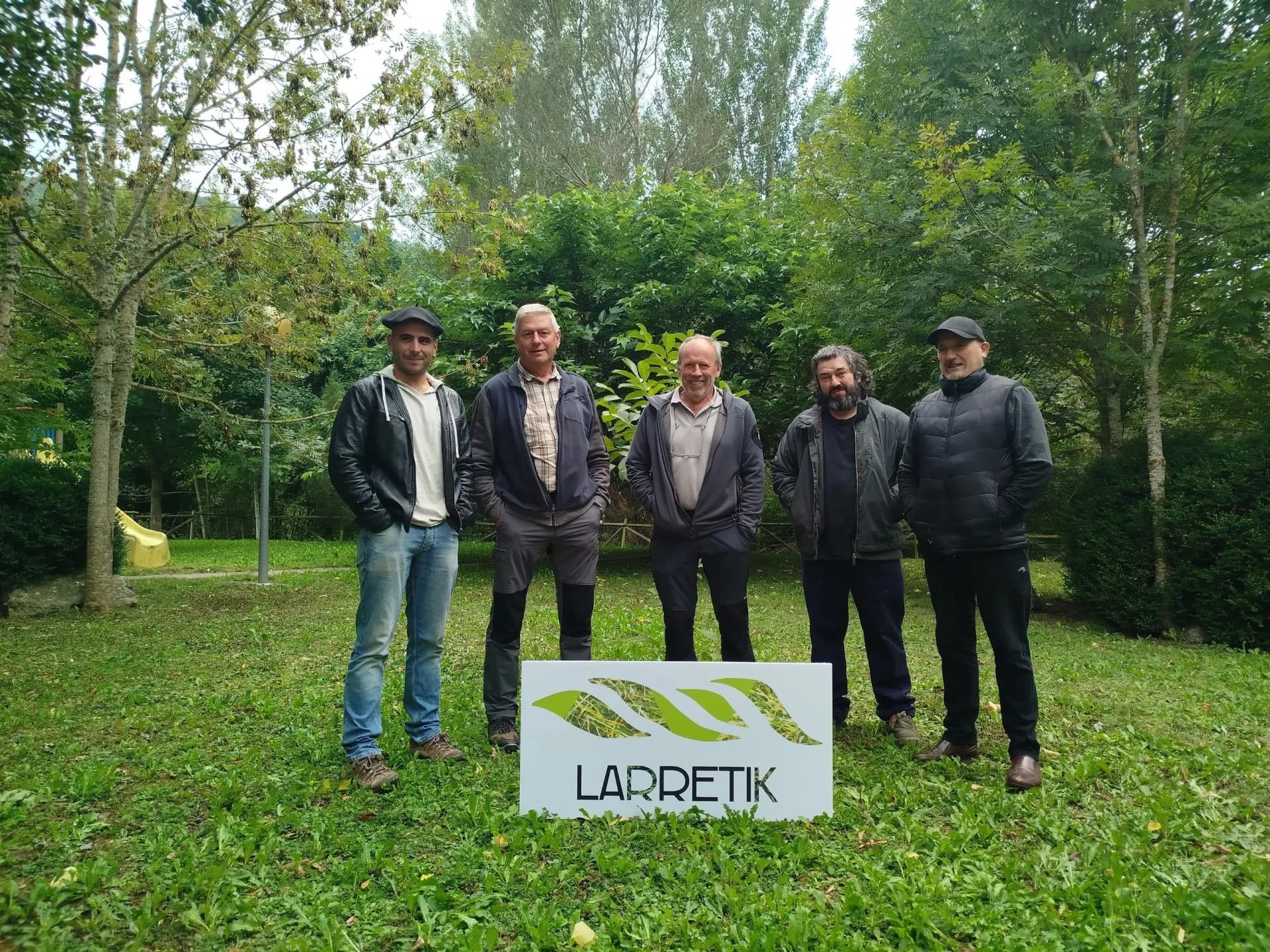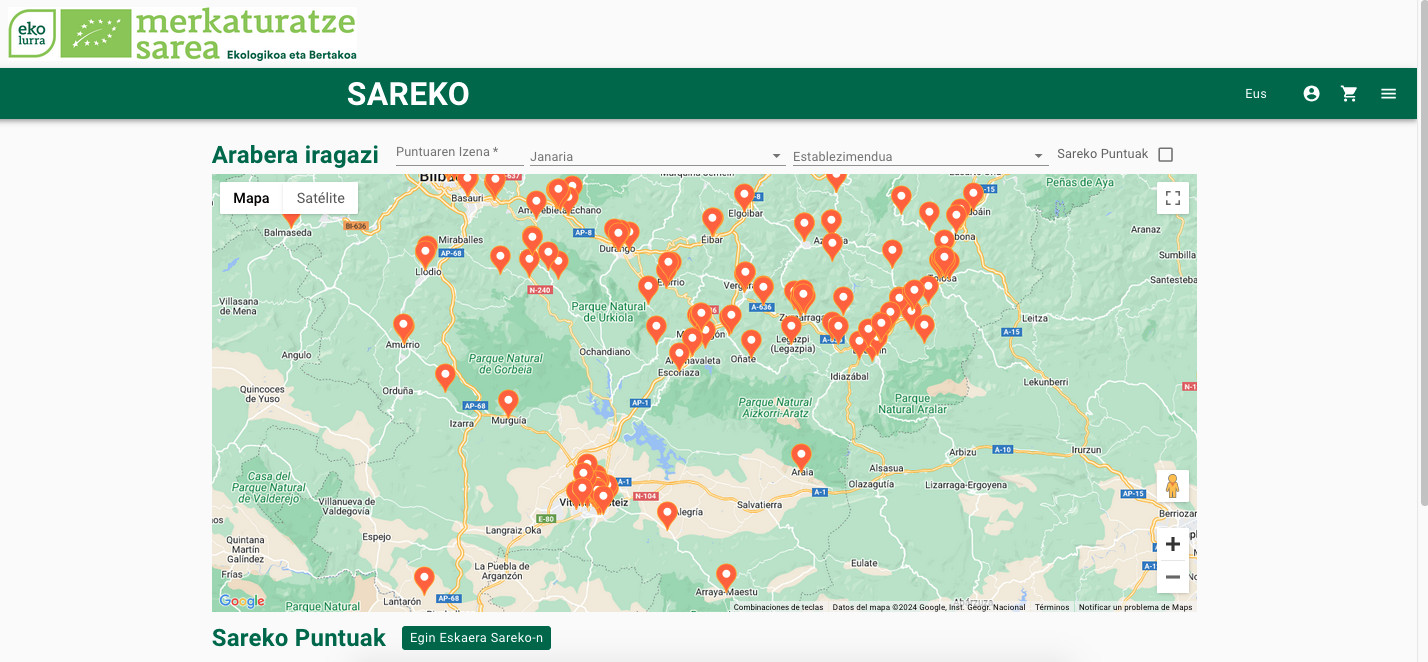Neither the txakoli nor the wine of Irulegi, this is the Baztan Xurie!
- Ana Iriarte Báñez and Iñaki Bengoetxea are behind "Baztango Xurie", an ecological mountain viticulture project. They're both agronomists, and they worked on it until they were unemployed in the 2013 crisis. They then decided to return from Pamplona to Arizkun, with the intention of entering into an agricultural project. “It was one of those moments when you have to do everything you can do in life,” Iriarte says. At first they had no land, but they managed to leave the plots for rent and in these years they planted the vineyards in three shifts, one of them with the help of Udalbiltza. Currently, three hectares are cultivated, spread over four plots of Arizkun.

On more than one occasion they had to hear that before starting the project it would not be possible to produce wine in the Baztan area. “Our reference has always been Baigorri and Irulegi, we have touched a lot by the closeness, but they all told us: ‘The climate is different!’, says Bengoetxea. Climate data from the different locations were analyzed and it was decided to move forward with the help and support of producers of eco-txakoli from the other area of Izpegi and Gipuzkoa and Bizkaia.
Once the vineyards are planted, you have to wait three or four years to start collecting the grapes and seven years for good production. “Where do you live in that interval? The subsidies are not prepared for this,” they denounced. After getting through these difficult first years, in 2016, for the first time, they were able to make a small amount of wine for the tests. In 2017, on the other hand, they started with wine production. It is expected that some 4,000 bottles will come out of this year’s harvest, and when all the vineyards of the three hectares begin to produce, the goal is to reach 10,000.
Wine cellar of grapes
“In the early years we came to Olite and Igúzquiza because we didn’t have infrastructure here,” they say. Their intention was to start their own winery at Arizkun and, finally, they got it in 2019. Since then, they have made all the wine. The large and small Izkiriota of the Irulegi Designation of Origin, the Hondarribi Zuri de txakoli and the Riesling de Altsacia are the varieties that they use to produce wine, all produced in an ecological model. “From the beginning we were clear that we wanted to work on the ecological, because it had to be something that respects the environment, workers and consumers, and because from our smallness we believe that the world has to move with other models.”
Although so far they have only produced a type of wine called Kiribil, this year they come with news: Bete crianza wine in wooden barrel. They attach importance to direct selling and to simple marketing routes, and they often go to fairs in the area. They also sell in nearby shops and restaurants, and are part of the Baztango Zaporeak initiative. They reach other places in the Basque Country through the Biba Vinos project.












